Updates from Empowering the Future
Updates from Dodoma region, Tanzania
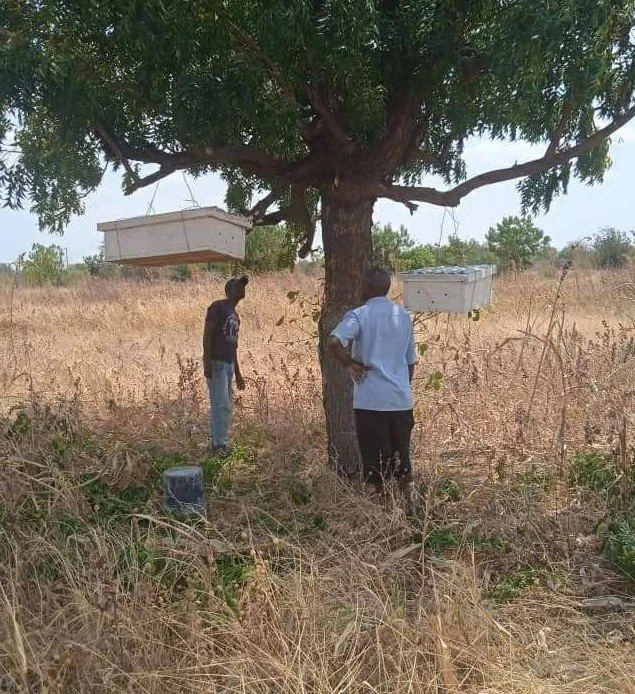
September 2025 Some of the Tanzanian Empowering the Future team have invested in bee hives. Their plan is to encourage bees, which are essential pollinators, whilst also producing honey which can be sold to generate income to enhance the work of the organisation.
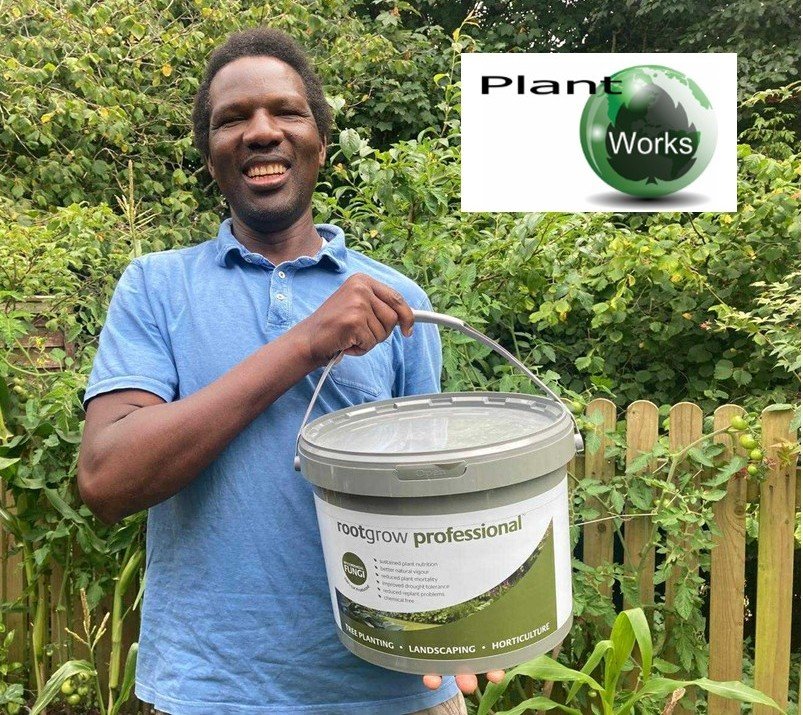
August 2025 While at Groundswell, the UK's biggest regenerative agriculture conference, Jemma chatted with Marina at the PlantWorks Ltd stand about their mycorrhizal fungi products which form beneficial relationships in the soil with plants. PlantWorks Ltd kindly donated a 10kg tub which Festo was able to take to Tanzania in August (Jemma didn't fancy trying to explain it at the airport in Dar es Salaam in beginner Swahili). When the planting season starts later in the year we will be able to share the pelleted product and farmers will benefit from this boost to improving soil health, which will hopefully improve yields in the future. Healthy soil, alive with a huge range of soil fauna, fungi and microbes is the foundation of strong plants.
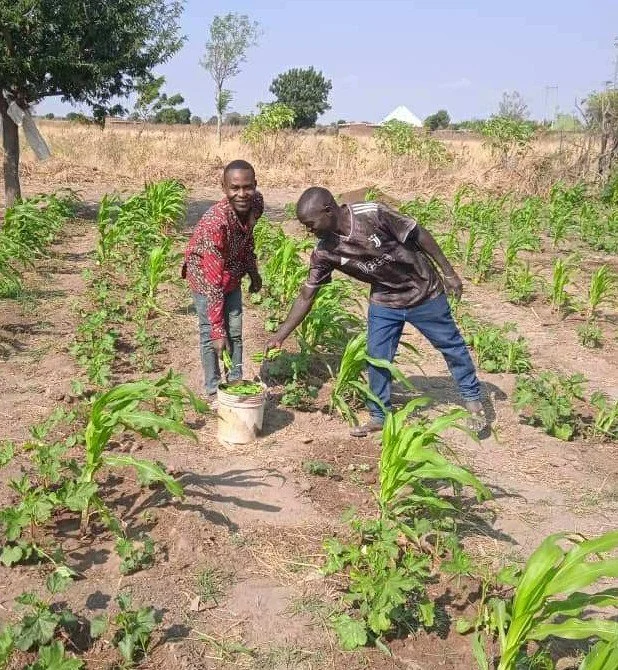
July 2025 These young people took advantage of the subsidised seed offer in April and, using their new knowledge of intercropping are already harvesting Okra (Bamia in Swahili). Some of these will be used to improve food security and dietary variety and some will be sold. Others in the villages are also succeeding with vegetable cultivation to generate income.
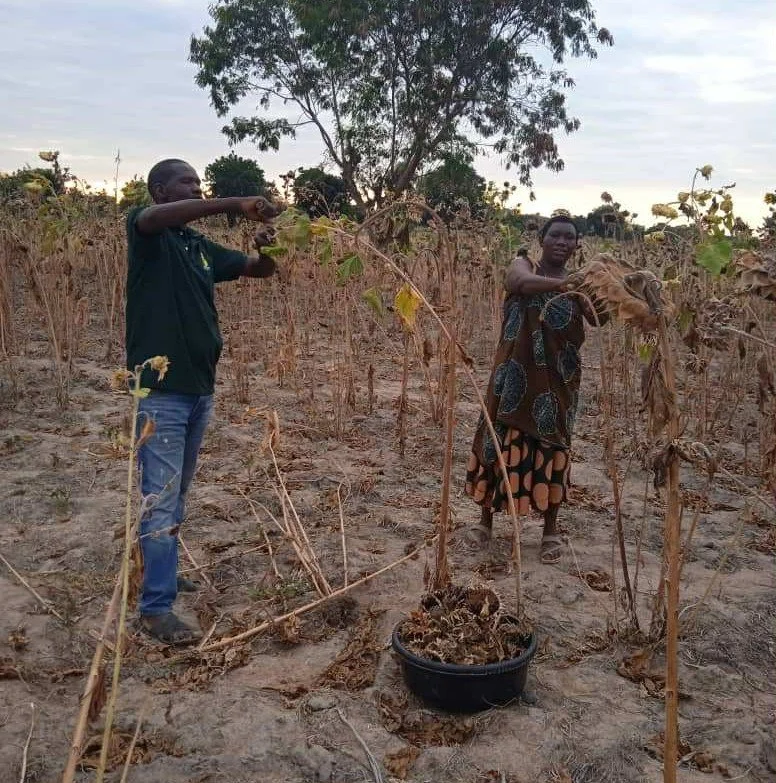
July 2025 Harvesting the sunflower heads from the Empowering Plot. The heads will be stored until cooking oil is needed, at which point they will be taken for pressing by machine in the village. In the past the people who provided the pressing service would keep the remains, but we are now encouraging people to collect it back and make it available to livestock - it is a high protein fodder and will maintain or improve animal health. The sunflower stalks can be used for creating protection for young trees.
May 2025 Having laid the foundations of our multipurpose building in November, we were able to purchase enough bricks for another two layers of construction in April. While it may seem strange to buy bricks before being able to use them, this is a common practice in Tanzania - when money is available, bricks are bought and stored. It also makes life more manageable for the local brick maker who would be overwhelmed by a request for 7,500 bricks all at once! We would love to be able to order another 2,000 bricks in September when some of the UK team will be visiting Lamaiti. We calculate that to be in the region of £1,360.00 (68p per brick).

May 2025 One of the tremendous advantages of having our own plot in Lamaiti is that we can now demonstrate what we are teaching. This year, sunflowers were sown in February. These can grow beyond the end of the rainy season because they will root as deep as 80cm to find moisture. In April we bought seeds to grow Kunde (Cow pea) which were sown between the rows of sunflowers. The kunde is a nitrogen fixer so will improve the sunflower’s growth as well as providing edible leaves and then peas. Removing agricultural monocultures also improves biodiversity and soil health, both vital for a resilient future.

April 2025 A visit to Lamaiti in April was an opportunity to offer seminars about climate change resilient farming methods in surrounding villages as well as Lamaiti. What added real value this time was to have a local man, Johnny, who had tried intercropping his maize and peanuts and seen an improvement in the yield of both, to share his story. This feels like definite progress.

April 2025 Our small English speaking pre-school seeks to provide a range of learning opportunities so rather than just bring toys from the UK, we asked the local carpenter to make some wooden blocks for the children to use, thus supporting the local economy. This kind of toy develops dexterity, imagination, problem solving and fosters working collaboratively, and the children love them

16 April 2025 As the light starts to fade, we have finished sowing the Kunde (Cow Pea) seeds amongst the sunflowers. This plant is a nitrogen fixer, will help to cover the soil, keep living roots in the soil and produce food in the form of the leaves even if they don’t produce peas (we're asking them to grow into the dry season). Win:win.

16 April 2025 Already the Empowering the Future plot is growing produce. These sunflowers are being grown in order to press the seeds for oil. It’s the most delicious sunflower oil, grown with no inputs at all, and not refined or processed in any other way. It smells of sunflower.

16 April 2025 If you haven’t seen them before, the little blobs on the roots of these Karanga (peanut) plants are where the bacteria which fix nitrogen make their home. This nitrogen benefits other plants grown in the vicinity, hence the improved yields of both mahindi (maize) and karanga when they are intercropped.
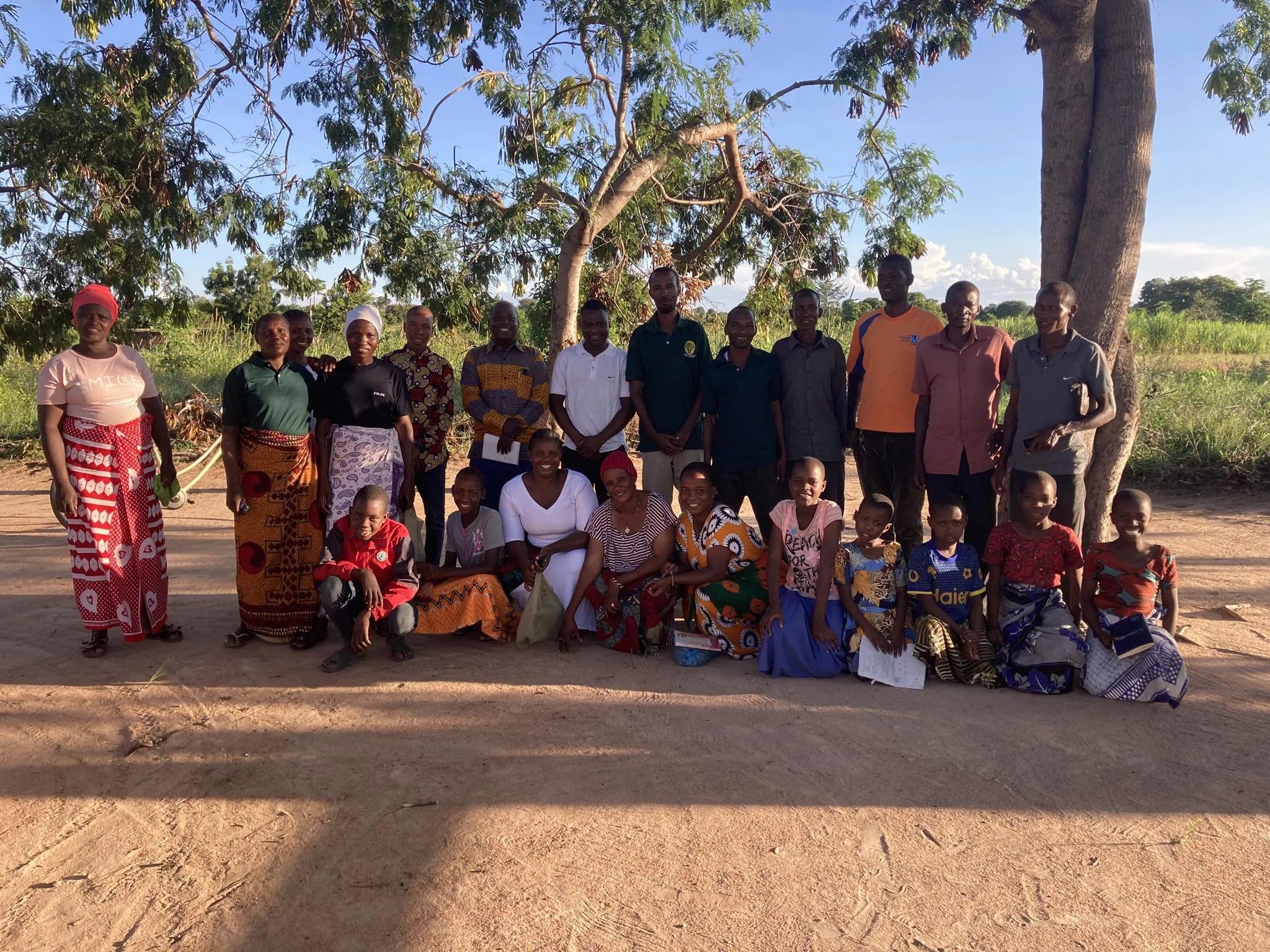
15 April 2025 Our seminar in Miondo had to be rescheduled twice, but eventually on Saturday afternoon we were able to share knowledge about climate smart farming with about 20 people. They are keen that we return…

15 April 2025 In the face of an insufficient maize harvest, Empowering the Future offered people in Lamaiti vegetable seeds at quarter of their usual price. The hope is they will be able to eat some vegetable and also sell some in order to buy maize when they need it. Here is the little ‘shop’ where we packed down bulk bought seeds, and some customers. Hoping this may be the start of a community ‘seed club’.
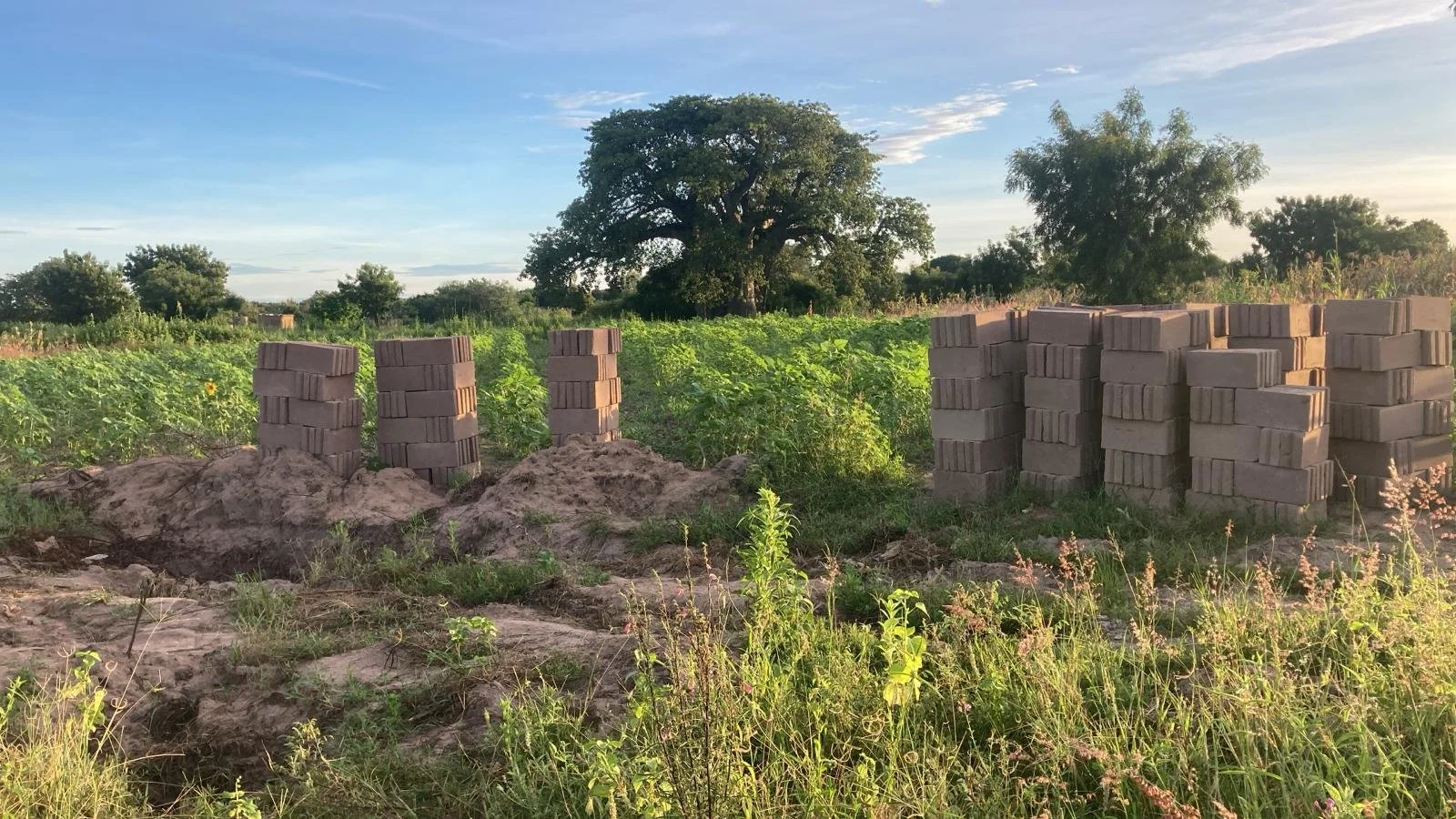
5 April 2025 Just after dawn showing the huge Mbuyu (Baobab) tree on the corner of the Empowering plot, with our first crop - sunflowers, and a new stack of bricks, purchased at 68p per brick by supporters in the UK, ready for another layer of the building.

26 November 2024 Goats in Lamaiti with their kids. The branch they are hopefully getting a taste for is Gliricidia Sepium. This is a very useful and quick growing tree which can be used as a fodder for livestock, either fresh, or dried as 'tree hay' for use in the dry season. It is also a nitrogen fixing plant and is good for fuel. This branch is from a tree planted near the Primary School which grew from a seed purchased and raised in our council owned plot in Dodoma in June 2023. No wonder it's got the nickname of 'Quick Stick Tree'.


